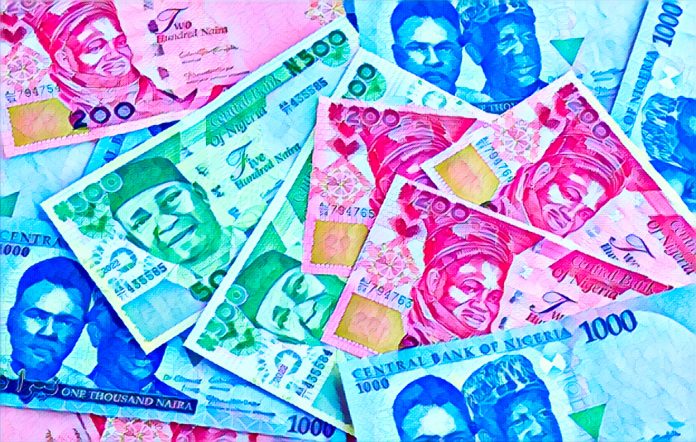KEY POINTS
- Currency devaluation drives up prices on essential goods in Nigeria.
- High inflation from devaluation reduces the purchasing power of naira savings.
- Rising production costs from devaluation challenge SMEs and impact jobs.
Currency devaluation—the intentional reduction of a currency’s value relative to others—has broad impacts on Nigerians’ daily lives, particularly as the naira has faced significant devaluation in recent years.
Nigeria’s dependence on oil exports, which account for more than 80% of its foreign exchange earnings, makes the economy especially vulnerable to global oil price fluctuations. When prices drop, the Central Bank of Nigeria (CBN) has fewer resources to stabilize the naira, often leading to devaluation (Nigeria Extractive Industries Transparency Initiative).
Beyond external pressures, internal policies also shape currency stability. The CBN has imposed restrictions on foreign currency access to conserve reserves, but this limits Nigerians’ ability to shield themselves from inflation and currency fluctuation impacts. Together, these factors set the stage for steep price hikes on imported goods, reduced purchasing power, and challenges for small businesses trying to survive rising costs.
Rising costs and reduced purchasing power affect Nigerian households
One of the most immediate impacts of currency devaluation on Nigerians is the rising cost of living. When the naira weakens, the prices of imported goods—electronics, vehicles, and even many essential household items—soar. Food prices have also spiked as a result of higher import costs for agricultural inputs, with food inflation reaching 24.4% in 2024. This inflation rate severely affects lower-income households that spend a large proportion of their earnings on food (National Bureau of Statistics).
Transportation costs are also heavily affected by devaluation, given Nigeria’s reliance on imported fuel. As the naira loses value, petrol prices rise, increasing the cost of both private and public transportation. This, in turn, raises costs across the economy, as businesses often pass on higher transportation expenses to consumers. Housing costs are similarly impacted. Materials like cement and steel, frequently imported, become more expensive, driving up construction costs and, consequently, rental prices (Nigerian Building and Road Research Institute). For many Nigerians, the combined effect is a reduction in disposable income as necessities consume a greater share of their earnings.
Beyond daily expenses, currency devaluation also hits savings hard. As inflation outpaces interest rates, the real value of naira-denominated savings declines. High inflation erodes the purchasing power of these savings, making it harder for people to afford goods and services over time. Additionally, CBN policies restricting access to foreign currency accounts mean that many Nigerians cannot readily save in dollars or euros to protect against naira devaluation (Nigerian Deposit Insurance Corporation).
How businesses and individuals are adapting to currency devaluation
For Nigerian businesses, particularly small and medium-sized enterprises (SMEs), currency devaluation brings severe challenges. SMEs that rely on imported materials for production face rising costs, which often lead to price increases or workforce reductions. In fact, local manufacturers reported that production costs increased by more than 20% in 2024 due to currency-related price hikes (Lagos Chamber of Commerce and Industry). With tight budgets, many SMEs struggle to compete with imported goods, which further limits their growth.
The labor market also feels the strain, as companies impacted by devaluation may delay hiring or reduce their workforce to control costs. Wages often remain stagnant despite rising inflation, eroding workers’ real incomes and reducing their ability to cover basic needs. According to recent reports by the National Bureau of Statistics, real wages dropped by 12% in 2024, reflecting how inflation and currency devaluation diminish disposable income.
To cope, many Nigerians are adjusting their spending habits. More are turning to cheaper alternatives, reducing non-essential purchases, or finding ways to supplement their incomes. Some are investing in foreign currency accounts or even cryptocurrencies as hedges against naira volatility. Additionally, remote work opportunities have become increasingly popular, with Nigerians leveraging global freelance platforms to earn more stable foreign currency, thereby mitigating the impact of devaluation on their incomes.



